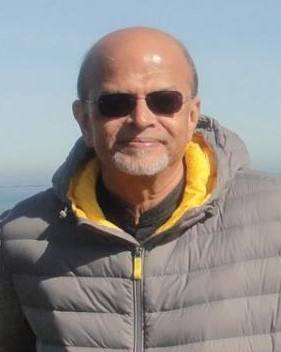One often sees that a change in leadership in an organisation or a function causes many changes.
Among the first changes are in the team and the marketing/ PR partners, with the person moving into the new role ‘bringing’ her/his ‘trusted’ people into the new organisation.
In all my years of working, I have never done that.
Because to me, the people in the team and the partners were working for an organisation and never for an individual. To me, therefore, taking people or partners away with me would not be fair for the organisation I was leaving.
That’s why, when I moved into my new role as Marketing Director – India, for the 2nd largest IT consulting and services firm in the world, and relocated to Bangalore after being a part of India’s most successful IPO in 2004, I did not ask any of my former team mates/ communications partners to move with me.
The first few months were spent building up team spirit and understanding what the brand/ communications goals should be, rather than what they were.
The first change that was required stemmed from a tough business goal.
Our firm was ramping up it’s IT service delivery capacity in India, and we were hiring laterally. This could not go on for long, because our project costs were going through the roof. We needed to hire freshers from colleges, and we needed to do it fast.
Those were the days when every engineer graduating was getting offers from the three Indian IT majors. They (the students) had a choice.
There was also the cultural issue, where everyone who got multiple offers, was consulting the parents/ elders in their family. So, when the newly minted engineer took home three offers (including one from my firm), the father/ elder would recommend the other two big Indian firms.
Reason?
They had never heard of my firm!!
A quick analysis showed where we were going wrong.
- The advertising all featured a renowned golfer, who was a great brand ambassador for the consulting business, but not when it came to recruitment. Because neither the potential recruit nor the influencer (father/ elder) had ever heard of the brand ambassador let alone the game of golf.
- The advertising was also only in English newspapers. Because like most global firms we also did everything in EnglishJ. No regional media was ever on the media plan. Here again, one was missing out on reaching the influencer who read regional media.
- There was no regional PR to talk about.
The net result was that the offers we were making were not getting converted into acceptances.
I spoke to our PR partner (a global firm, which was aligned to us around the world). They were not very helpful.
“Our mandate does not include regional PR”.
I spoke to our branding and advertising folks, but they too, were initially adamant that they would do advertising in the mainline dailies using the brand ambassador.
That was when something snapped in me.
I decided to rock the boat, irrespective of the consequences.
I made what was then a blasphemous statement at a company event, in the presence of the Chairman and COO of my firm (who were visiting India at the point).
“TW (the brand ambassador) will not work in India with the current business goals. I need a different ad campaign, and I also want to use regional media for PR and advertising,” I said to my global folks and dug my heels in, in spite of all the flak I faced.
I also told the PR partner that if they were unwilling/ unable to do PR in regional media, I would do it on my own, with my HR team. I also clearly sent out a message to the PR partner that what they were doing was not acceptable and left it at that.
The head of recruitment and me then sat together and planned a different strategy.
We already knew the universities/ colleges we were planning to visit. Both of us decided to visit those towns about 2 weeks in advance and meet all the key regional media, who were delighted to welcome us, given that hardly any MNC was engaging with them. We put together presentations about careers in our company in the local languages, and also took along a person who knew the local language of the city we visited. We then made the presentations.
The fact that we had met them, and presented to them in their language ensured that we got excellent coverage in their publications leading up to the time when our recruiting teams went in. By then, thanks to the editorial coverage, the ‘influencers’ were aware of our brand and the international lineage.
We also created a new advertising campaign, “Raise your sights”, which did not feature the brand ambassador, but focused on the growth possibilities if a person joined us. This was also released in regional media.
(Note: many people use the term vernacular media. As a Hindi journalist pointed out to me, vernacular is a ‘demeaning’ word. He said that he was from ‘regional media’. My request to readers is to bear this in mind. Use the phrase ‘regional media’ and not ‘vernacular media’).
The results of this approach were very pleasing:
- Our offer to conversion ratio for new hires increased manifold
- Relationships were built with regional media
- The ad campaign won the best global campaign for that year. Our team was also judged the best marcom team globally
- The PR mandate was transferred to another firm from the same communications group
PostScript
- In a position of responsibility, if you feel something needs to change, change it. Rock the boat, if you must, and if you genuinely believe in your idea.
- Regional media can make or break a brand or a company. Never forget that, and never look down on them.
- No other country except possibly India has so much cultural diversity. Try and understand it and make business plans/ marcom plans which are aligned to this diversity.
- Speak up if you feel that you have a better idea, irrespective of your level in the hierarchy. Make this a part of your DNA. Keeping silent never solved any challenges.
The views and opinions published here belong to the author and do not necessarily reflect the views and opinions of the publisher.



Be the first to comment on "Rocking the boat: Going regional"